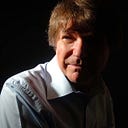Member-only story
Jung: a revelatory lamp to read by
Jungian literary criticism can illuminate the deep structure of narrative fiction, as in a reading of Mary Shelley’s Frankenstein
In the classical Jungian method, literature is considered in relation to the collective and the personal unconscious and the archetypes which compose them.
As a branch of psychoanalytic criticism, the practice of Jungian literary criticism follows many paths, one of the most important being the discovery and explanation of recurring archetypal patterns of symbol, character, theme and genre, and also of myth which, Jung believed, could be regarded as a kind of projection of the unconscious.
It comprises a tradition which has included some of the leading critics of the twentieth century, influencing such figures as Northrop Frye, Joseph Campbell, Robertson Davies, Robert Bly and Kathleen Raine.
Of course, the psychology of literature is a long-lived concern, going back more than 2,000 years to Aristotle, since when critics and philosophers have frequently discussed such topics as the author’s motivations and intentions and the effects of texts and performances on the readership or audience.
The application of psychoanalytical principles is a much more recent event, however, initiated mainly by Sigmund Freud, Alfred Adler and Carl Gustav Jung, although the…
